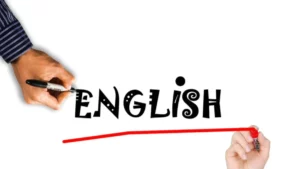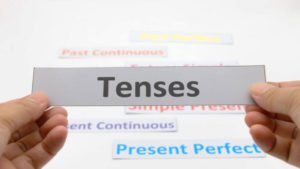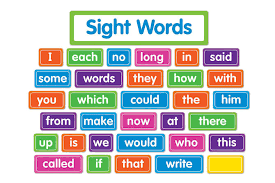The English language is full of errors and anomalies, and as a result, you will always find weirdly spelt English words. Therefore, it is not a simple language to write if you are unfamiliar with all of the spelling rules as well as the long list of exceptions.
The historic and illustrious journey that the English language has taken has a lot to do with its spelling quirks. Thus, let’s look at some odd English spellings and their meanings.
What are some weirdly spelt English words?
Queue
The term and verb ‘queue‘ are always spelt incorrectly. Phonetically, we would anticipate the spelling to be something like ‘Kew‘, which is also the name of a London district.
Committee
The word committee refers to a subset of a broader group organised to accomplish a task. It features double Ms, double Ts, and double Es, thus making it difficult to spell. Some common misspellings include comitee and comitee.
Mortgage
This word is one that is pronounced differently than what it is spelt. It is pronounced ‘Mawgij,’ but is spelt with a silent T. You are sure to get this one wrong the first time you try to write it.
Occurred
We’re now up against another double consonant. This is to help with pronunciation by emphasising the ‘k’ sound in the first double C and a rolling ‘r’ in the second double R. Furthermore, something more perplexing is that the present tense, Occur, contains only one pair of double consonants!
Asthma

You may argue that Asthma should be spelt Asma since it is more phonetically correct. The issue here is caused by silent consonants. Whether you write Asthma or Asthmatic, the T and H are both silent.
Jeopardy

This word is difficult to spell since it might be pronounced as ‘Jepardy‘ or even ‘Gepardy‘. All it takes is one silent O to get you in serious peril.
Indict
The word indict is a jumbled mess. Despite the fact that the term ‘dict‘ is spoken phonetically in words like dictionary or dictaphone, it is pronounced ‘dite‘ or ‘dight‘. Therefore, you will probably get the spelling of this one wrong.
Acquaintance
“Acquaintance” is a difficult one to spell. The combination U-A-I is not extremely common in the English language, although it does occur occasionally. Keep in mind that Q is usually followed by U when spelling this word. Then are the letters A and I.
Colonel

This term is pronounced Col-o-nel in French, but in the United Kingdom and the United States, it is pronounced ‘kernel‘, which is also a word in itself. This weird word is sure to leave you scratching your head.
Knead
Knead is most commonly used when referring to dealing with dough. Not only is K silent in the word, but the word itself is a homophone. Thus, it sounds the same as need, a significantly more often used term. Other common homophones include See/Sea, Pea/Pee, Knight/Night, and Sure/Shore.
Psychology
You would’ve come across psichology or sychology, which are both common misspellings of the word “psychology”. Here, the P is silent, and so is CH. Because this is difficult to spell.
Through
Through can be an adjective or a preposition. However, when it comes to phonetics, ‘through’ may sound more like ‘thruff’ or ‘thrau’!.
Acknowledgment or Acknowledgement
This word is weird as it is spelt differently in different countries, thus making it difficult to remember. The form with the “e” is more common in the United Kingdom, whereas the spelling without the “e” is more common in the United States.
Nauseous

There are a lot of vowels in “nauseous,” hence, making it difficult to remember which ones belong where. Even if you have them all figured out, you may still have doubts about the consonants. The “sh” sound suggests that there should be a “c” somewhere in there, as in “conscious.” Furthermore, if the spelling blunder wasn’t enough, you’ve probably been using the term “nauseous” incorrectly as well.
Liquefy
In a vacuum, this would not be a difficult word to pronounce. It’s simply seven letters long and is spelt almost exactly how it sounds. However, the final three letters completely confuse spellers, which is understandable. “Pacify,” “clarify,” “specify,” and “rectify”, almost every other word in this spelling pattern has the “-ify” suffix. Even fictitious variations of the term, such as “green-ify”, are spelt with a “i”. However, the word “liquefy,” which means “to create or become liquid,” ends in “-efy.” To make matters worse, the word “liquid” is spelt “-qui,” giving the impression that the second vowel should be a “i”. But actually, because “liquefy” is written with an “e,” it’s one of the most difficult terms to spell.
Which words are pronounced the same but spelt differently?
These words have the same pronunciation but are spelt differently depending on their meaning. Therefore, misspelling these terms is highly prevalent among native English speakers, who naturally spell the words one way when they mean to convey something different.
The guideline for correctly spelling these types of words is to memorise the correct spelling for all of them before selecting the one you wish to use. However, the only challenge is determining which is which.
Lose or Loose

To “lose” implies to come up short, while “loose” refers to something that is going to detach or is not firmly fitting. For example, you lose a game, but your T-shirt is too loose, not vice versa.
Weather and Whether
The natural occurrence of rain, sunlight, snow, and other everyday variations in the atmosphere is referred to as weather. On the other hand, the word whether is a conjunction that means “if”. For example, your mood determines whether the weather is pleasant or awful.
Than and Then
The conjunction and preposition are used to compare and/or contrast two or more items. The adverb “then” means “after that.”
For example, if one cake is cheaper than the other, then we will choose the cheaper one.
There, Their or They’re
There is an adverb that denotes place, while the possessive form of “they” is “their.” “They’re” is a short form for “they are.” Do not mix up the three.
Share with your friends





